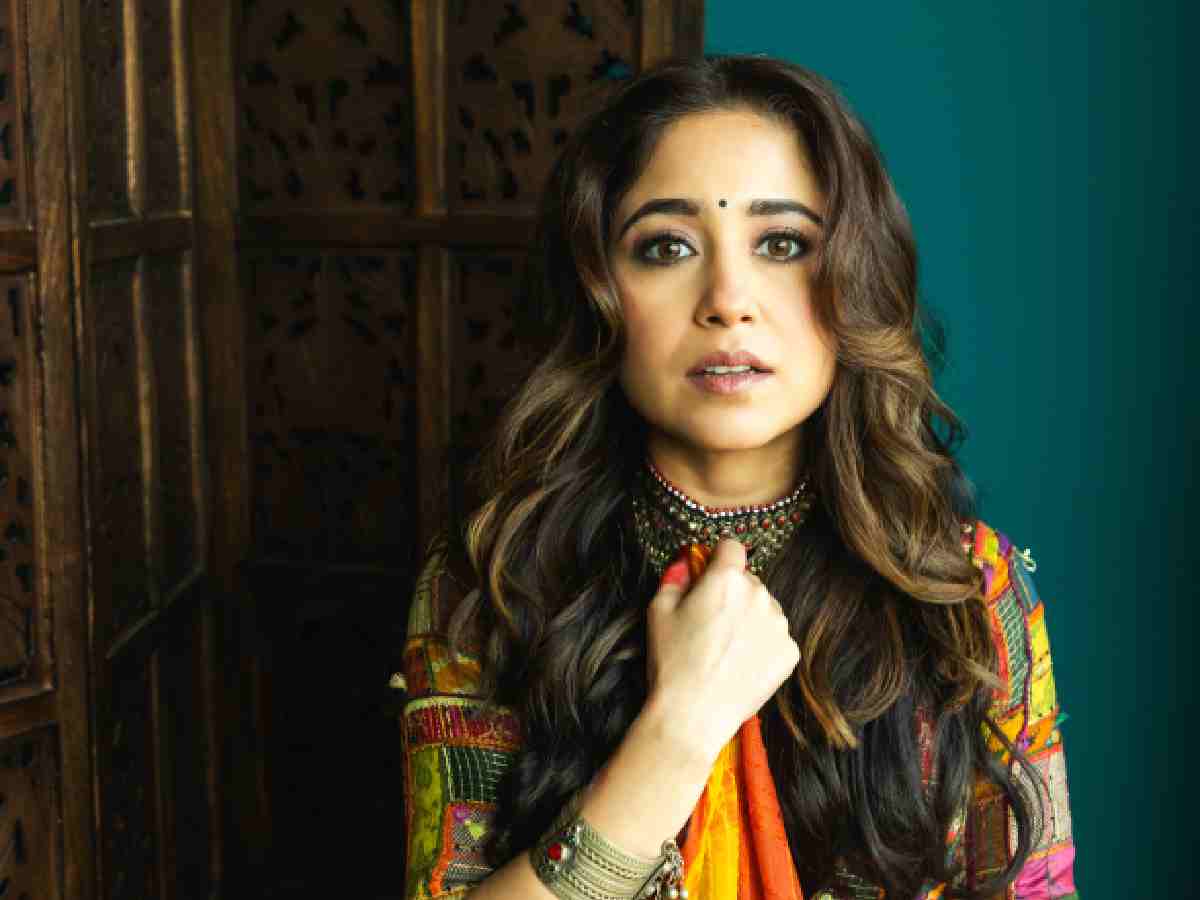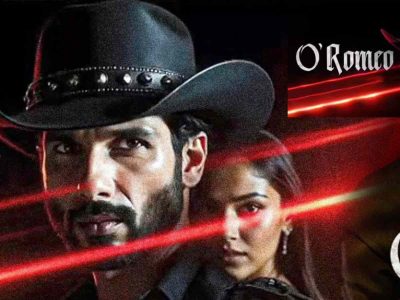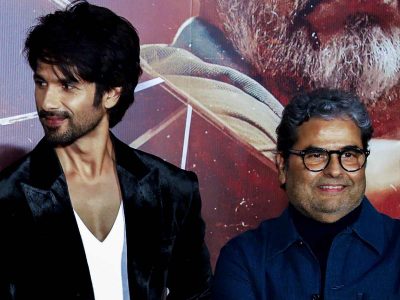There’s a particular clarity that comes from returning to where you began—not to relive the past, but to reframe it. For actor Shweta Tripathi, that place is the theatre. Over a decade since she last performed on stage, she has returned—not in costume, but in command.
Best remembered by a generation of millennials for her breakout role in Kya Mast Hai Life, and now widely acclaimed for her layered, genre-defying performances—Golu Gupta in Mirzapur, Shikha in Yeh Kaali Kaali Ankhein, and more—Tripathi has recently stepped behind the curtain. But this isn’t a pivot. It’s an expansion: a quiet recalibration of what it means to hold space, to wield empathy, and to shape narratives that don’t merely entertain, but interrogate.
Through her revived theatre production company, AllMyTea—originally founded in 2010—Tripathi produced Cock, the Olivier Award-winning play by British playwright Mike Bartlett. Directed by Manish Gandhi, the revival marked the drama’s return to Indian stages after more than a decade. The cast included Rytasha Rathore, Tanmay Dhanania, Sahir Mehta, and Harssh Singh. Bold and unflinching, Cock explores identity, desire, and the fluidity of love—terrain that aligns seamlessly with Tripathi’s commitment to telling stories that are as urgent as they are intimate.
Also read: ‘I want pain to stay in my voice’: Afsana Khan
Learning to listen
Speaking over the phone, Tripathi sounds bright, grounded, and still riding the emotional high of Cock’s run and a recent walkathon where drag artist Sushant Divgikr—also known as Rani KoHEnur—performed.
“Oh my God, what a performer,” she says, her voice tinged with awe. “People like Sushant, like Sakshi (founder of Gaysi Family)—they’re opening windows in my head.”
Tripathi’s path to Cock wasn’t linear—it was organic. “This play chose me as much as I chose it. At its heart, it’s a love story—one that grapples with identity, ownership, and the expectations we place on each other. And then come the complications—when you realise, perhaps for the first time, that you have a choice,” she reflects.
The seeds of the collaboration were planted back in 2010, during a two-week theatre residency at Adishakti in Pondicherry.
“We started with colour-deep eye exercises and text work—it was this beautiful, immersive experience,” she recalls. “That’s where I met Manish Gandhi. We connected instantly. I was drawn to his ideas, his way of expressing, and the kind of work he envisioned.”
It was Gandhi, now a UK-based director, who later suggested she read Cock. “When I finally did, I thought—yes, let’s do it,” she says simply.
Tripathi has long been drawn to stories that challenge convention. “I did a project called Escaype Live back in 2022 where my character falls in love with a boy who wants to be a girl. Stories like that moved me deeply,” she says. “At their core, what draws me to these narratives is a shared belief in freedom, respect, and love. These are values I live by—and I find them echoed in the lives of the people I portray.”
Meeting individuals who live these truths has been humbling.
“I can’t even begin to imagine the pain, the struggle, and the strength it takes to walk their path,” she says. “Their journeys are powerful reminders of how vital empathy and dignity are in our world.”
On queerness, allyship, and accountability
The timing felt urgent. As Pride Month unfolds, Tripathi is engaging more consciously with her own privilege and responsibility.
“To be honest, I’ve always been fortunate to come from a liberal, educated family. My parents never made distinctions based on gender, religion, or background. My father always said, ‘The most important thing is to be in a position to help others. If your friend needs you and you can’t be there, what’s the point?’ That stayed with me.”
Her experience producing Cock sharpened her understanding of queerness—particularly the quieter, less visible stories within the spectrum.
“I used to think it’s equally hard for everyone in the queer community, but it’s not. There are layers of difficulty even within,” she admits. “I’ve had many gay friends whose honesty, humour, and empathy I treasure. But I’ve had far fewer conversations with lesbian women. A friend pointed that out—and it made me reflect.”
What has struck her most is the community’s strength. “Even when I’m struggling with something small—like a costume or finding a rehearsal space—someone always steps in to help. They’ll say, ‘Hey, I don’t know the solution, but here’s someone who might.’ That kind of love, generosity, and solidarity—I’ve felt it so deeply.”
Also read: Total recall: When Sholay and Jai Santoshi Maa megastorm hit Delhi
Producing with intention
“What I’m coming to understand,” she says, “is that my job as a producer is to offer unwavering support to the director and the actors—to do everything I can to help bring the show to life.”
Acting, by contrast, requires a different kind of presence.
“For me, it always begins with the material. If something I read or hear strikes an emotional chord, I feel compelled to be part of it. But I have to be honest with that instinct. I’ll never force myself into something I’m producing if I don’t feel I’m right for the part.”
She points to Cock as a case in point. “There’s a young woman at the centre of this story, and Rytasha Rathore did a phenomenal job with the role. Just because I’m producing it doesn’t mean I have to act in it. I’m telling these stories because I want people to see them, to feel them—I want these experiences to reach audiences, whether I’m on stage or not.”
Having worked extensively in cinema and streaming, Tripathi is quick to underscore the importance of live performance.
“It’s raw and real. The world gets created in that moment—and the audience buys into it. Their energy joins yours. Whether they laugh or cry—it’s a shared emotional space.”
She pauses.
“I grew up watching theatre at Kamani, at Habitat. That’s where I fell in love with storytelling. Theatre is my first love—it’s what led me to acting. I want audiences to experience that same presence. Put your phone away. Be here, in this moment. That’s what live art gives us—a sense of community and immediacy we’re slowly forgetting,” she concludes.





